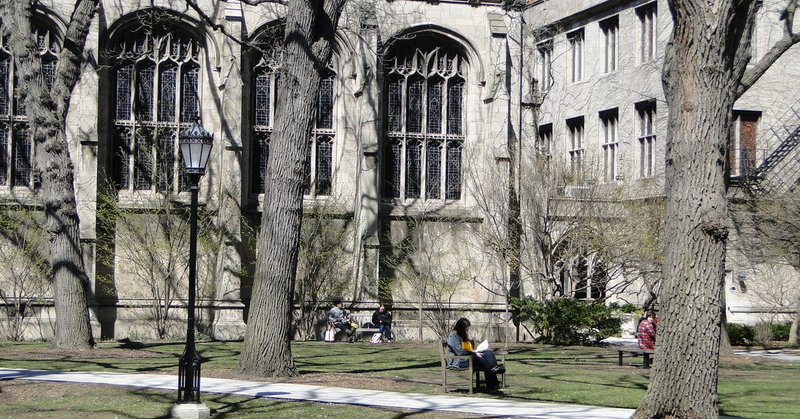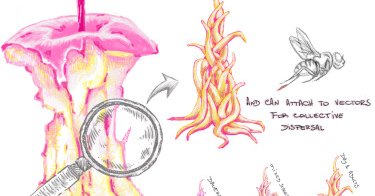
Greg Stephens
@greg_stephens
Followers
599
Following
503
Media
4
Statuses
360
OIST PhD & Research Internship Program - Call for Applications! 🔗Research Internship: https://t.co/O0OMdX5Gh8 (Deadline: 15 October 2025) 🔗 PhD program: https://t.co/4xvHalAVlk (Deadline: 15 November 2025)
0
76
208
He writes specifically about issues at The University of Chicago, but I believe that these challenges are much more universal.
compactmag.com
The University of Chicago is in crisis. Under extraordinary financial strain, it has diminished its faculty-student ratio and hired hundreds of “lecturers”: teachers whom it pays little and whom it...
1
0
1
The core substance of a university is the creation and questioning of new knowledge in every field that touches on human existence, and the commitment to integrating persons at every stage of learning into this process. A beautiful ideal by Clifford Ando.
1
0
4
(4/4) In mecp2 mutants, an autism model, predictive information is reduced, but especially for synergistic flows, an indication of difficulties in more complex social behaviors. We look forward to a continuing conversation about what it means to be (quantitatively) social!
0
0
0
(3/4) We ground our approach in the trajectories of two adult zebrafish engaged in a dominance contest. We find that information flows align with dominance and mirroring, and that asymmetries in self-unique and redundant information reflect the emergent dominance relationship.
1
0
0
(2/4) In this era of widespread posture-scale tracking, social behavior analysis remains challenging, often relying on specific assays and human-derived labels. We instead suggest that the flows pf predictive information provide a natural set of quantitative social variables.
1
0
0
(1/4) I’m happy to introduce our new work led by phd student Akira Kawano (not on X), which explores social behavior as mutual prediction, quantified by the decomposition of information (PID) between the past and future of a multi-organism system: https://t.co/SY1pQc7nkh
1
3
12
All of David Tong's (freely available!) lecture notes are now also available in published book formats https://t.co/odgIgUJr1t
2
74
306
Towering behavior and collective dispersal in Caenorhabditis nematodes https://t.co/iNUskBQanK
cell.com
Perez et al. report that self-assembling nematode towers occur in nature and can function as collective dispersal structures. Using Caenorhabditis elegans, they establish a tractable empirical model...
0
6
19
We are happy for feedback and plan to add more! You will also find most of my activity on the other site.
1
0
3
The tutorials explore principal components analysis, state space embedding, and Markov modeling, all through the dynamics of posture. They are the result of tremendous contributions from my own group members, and constructive feedback from participants at special-topics schools.
1
0
5
A vital and very enjoyable component of my academic work is teaching students at all levels how to extend the frontiers of knowledge. So I’m pleased to announce a set of Jupyter notebook tutorials organized around our ideas for “physics of behavior”:
github.com
Contribute to oist/Physics-of-Behavior-Tutorials development by creating an account on GitHub.
1
51
192
The 1st rule of night science is that only when we’re not trying to be efficient is there actually a chance for a new idea to be born.
4
19
142
🐟 Researchers created a 3D tracking system to capture male #zebrafish movements during dominance battles. They observed unique behaviors: losers often ramp up attacks at the end, while winners more often face their opponents. Read the paper in @PRX_Life:
0
4
19
And thank you @HFSP for the chance to do something really new!
Excited to see this fantastic study in print. The Physics of Zebrafish fighting in gory detail. In time for Halloween. https://t.co/gzdOnzOo9Y
@greg_stephens
1
0
9
🤔 What does it mean to understand biology? 📖 What makes theory in biology different? 🧬 What are the emerging concepts in the life sciences? We're excited to explore these questions at the 2nd edition of #EESTCBio! 🦬 Submit your abstract by 11 Feb ➡️ https://t.co/ieVTLvjWqP
0
14
41
🧵on Japan's underrated contributions to neural nets. Shun-ichi Amari @UTokyo_News_en @riken_en is another one of my heroes. His 1972 paper on associative memory models modeled Hebbian plasticity using an outer product weight matrix.
5
179
660
















